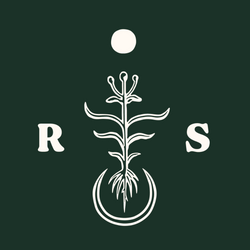Chinese medicine, a holistic system of health and healing, has a history spanning over 3,500 years. Central to this ancient practice is the use of herbal remedies, among which functional mushrooms like Lion's Mane, Cordyceps, and Reishi stand out. These fungi have long been celebrated in Chinese folklore and traditional medicine for their remarkable health benefits. This blog explores the fascinating history of Chinese medicine, the origins and timelines of these functional mushrooms, their integration into Western herbalism, and the importance of respecting their cultural roots.
The Beginnings of Chinese Medicine
Chinese medicine traces its origins to ancient texts such as the "Huangdi Neijing" (The Yellow Emperor's Inner Canon), written around 200 BCE. This foundational work laid out the principles of yin and yang, the five elements, and the intricate balance between the body and nature. Over centuries, Chinese medicine evolved, incorporating a wide range of treatments, including acupuncture, qi gong, and, notably, herbal medicine.
The Timeline and Origins of Functional Mushrooms
Functional mushrooms have been integral to Chinese medicine for millennia. Each of these mushrooms has a rich history and unique set of properties:
- Lion's Mane (Hericium erinaceus)
- Known as "Hou Tou Gu" in Chinese, Lion's Mane has been used since the Han Dynasty (206 BCE - 220 CE). Ancient physicians recognized its neuroprotective and cognitive-enhancing properties.
- Legend has it that Buddhist monks consumed Lion's Mane tea to enhance their focus and meditation practices.
- Cordyceps (Cordyceps sinensis)
- Cordyceps, or "Dong Chong Xia Cao," was first documented in the 15th century during the Ming Dynasty. Its use, however, dates back to earlier Tibetan medicine.
- A famous tale tells of a Tibetan herder who discovered the invigorating effects of Cordyceps when his livestock, after grazing on the fungi, became more energetic and fertile.
- Reishi (Ganoderma lucidum)
- Origins and Earliest Timelines: Reishi, known as "Ling Zhi," has been revered for over 2,000 years. Its earliest mention is in the "Shen Nong Ben Cao Jing" (Divine Farmer's Materia Medica), dating back to the Eastern Han Dynasty (25-220 CE).
- Reishi is often depicted in Chinese art and literature as a symbol of immortality, associated with Taoist alchemists seeking eternal life.
Integration into Western Herbalism
The integration of functional mushrooms into Western herbalism began in the late 20th century, driven by a growing interest in natural and holistic health solutions. Researchers and health enthusiasts started to explore and validate the medicinal properties of these mushrooms, leading to their inclusion in dietary supplements, teas, and wellness products.
- Lion's Mane: Valued for its potential to support cognitive function and nerve health, Lion's Mane has found a place in nootropic supplements and functional foods.
- Cordyceps: Known for enhancing energy levels and athletic performance, Cordyceps is popular among athletes and those seeking natural stamina boosters.
- Reishi: Celebrated for its immune-modulating and stress-relieving properties, Reishi is widely used in adaptogenic formulations.
The Special Nature of Functional Mushrooms
Functional mushrooms are special for several reasons:
- Nutritional Profile: Rich in vitamins, minerals, and bioactive compounds, these mushrooms offer a range of health benefits.
- Medicinal Properties: Each mushroom has unique properties, such as Lion's Mane's neuroprotection, Cordyceps' energy enhancement, and Reishi's immune support.
- Cultural Significance: These mushrooms are deeply embedded in the cultural and spiritual practices of their regions of origin.
Preservation and Respect for Origins
As the popularity of functional mushrooms grows globally, it's crucial to respect their cultural and ecological origins. Sustainable harvesting practices, support for indigenous knowledge, and fair-trade initiatives are essential to preserving these valuable fungi and honouring the traditions from which they emanate.
The history of Chinese medicine and the story of functional mushrooms like Lion's Mane, Cordyceps, and Reishi offer a rich tapestry of ancient wisdom and modern health benefits. By understanding and respecting their origins, we can ensure that these powerful natural remedies continue to thrive and support wellness for generations to come.

